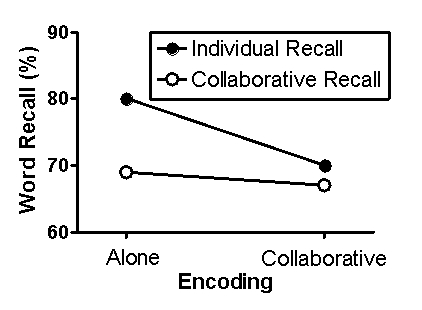Exam 6: Memory
Exam 1: Psychology: Evolution of a Science456 Questions
Exam 2: Methods in Psychology400 Questions
Exam 3: Neuroscience and Behavior588 Questions
Exam 4: Sensation and Perception551 Questions
Exam 5: Consciousness406 Questions
Exam 6: Memory484 Questions
Exam 7: Learning469 Questions
Exam 8: Emotion and Motivation363 Questions
Exam 9: Language and Thought390 Questions
Exam 10: Intelligence317 Questions
Exam 11: Development382 Questions
Exam 12: Personality368 Questions
Exam 13: Social Psychology360 Questions
Exam 14: Stress and Health311 Questions
Exam 15: Psychological Disorders372 Questions
Exam 16: Treatment of Psychological Disorders339 Questions
Exam 17: Integrative Questions211 Questions
Select questions type
After a near-fatal collision with an 18-wheeler,Penelope was unable to think about anything else for many months.She suffered the memory phenomenon known as:
(Multiple Choice)
4.9/5  (44)
(44)
Which area of the frontal lobe is activated during organizational encoding?
(Multiple Choice)
4.7/5  (36)
(36)
The encoding specificity principle states that retrieval cues which induce novel cognitive states are especially powerful at evoking memory retrieval.
(True/False)
4.7/5  (41)
(41)
The executive functions of working memory occur in the occipital lobe of the brain.
(True/False)
4.8/5  (41)
(41)
When Keith was asked to recall how he felt at the beginning of his current relationship with his wife Joni,his recollections were more similar to his present-day feelings than they actually were at the time.This memory phenomenon is known as _____ bias.
(Multiple Choice)
4.7/5  (41)
(41)
James was involved in a car accident 3 years ago.He recently saw a man he thought was in the same accident as well,but when he approached him,the man had no idea what James was talking about.It turned out that the man worked at a coffee shop that James had visited on the day of the accident and he was in no way involved in the car accident.James's confusion was the result of:
(Multiple Choice)
4.8/5  (36)
(36)
Short-term memory is limited in how long it can hold information and in the _____ information it can hold.
(Multiple Choice)
4.9/5  (24)
(24)
Whenever Andrea goes to the library to study,she takes a Red Bull energy drink with her and drinks it while she studies.As the semester progresses,she notices that she does considerably better on an exam when she drinks a Red Bull during it.She MOST likely does better because of:
(Multiple Choice)
4.8/5  (34)
(34)
Much of what we know about the neurological basis of long-term memory comes from laboratory studies of:
(Multiple Choice)
4.8/5  (32)
(32)
Blocking results when we try to retrieve information that has faded from memory.
(True/False)
4.8/5  (45)
(45)
Remembering to do things in the future is called _____ memory.
(Multiple Choice)
4.8/5  (37)
(37)
A participant studied the following word pairs: reptile-snake,reptile-turtle,reptile-lizard,amphibian-frog,amphibian-salamander,and amphibian-newt.Then the participant practiced recalling only the amphibian-salamander pair using the prompt "amphibian-sala_____." Sometime later,the participant was given a memory test of the words he had originally studied.Of these,which word would be MOST likely forgotten?
(Multiple Choice)
4.7/5  (31)
(31)
The _____ appears to be critically involved in the formation of new episodic memories.
(Multiple Choice)
4.9/5  (43)
(43)
_____ occurs when people consciously or intentionally retrieve past experiences.
(Multiple Choice)
4.8/5  (49)
(49)
Use the following to answer questions :
Scenario I
The scenario is based on and presents fabricated data consistent with the following study:
Barber,S.J. ,Rajaram,S. ,& Fox,E.B.(2012).Learning and remembering with others: The key role of retrieval in shaping group recall and collective memory.Social Cognition,30(1),121-132.doi:10.1521/soco.2012.30.1.121
In a typical experiment on collaborative memory,participants first encode information individually and later attempt to recall the information either individually or in a small group (collaboratively).While the recall of the collaborative group is better than that of any individual,the summed recall of individuals typically is better than the recall of the collaborative group.This is a phenomenon termed collaborative inhibition.Barber,Rajaram,and Fox (2012)investigated this phenomenon during both the encoding and retrieval stages of memory.
Participants created sentences out of a word bank,which provided for the opportunity to encode this information.After completing this task,participants engaged in an unrelated task-solving mazes-for 10 minutes.Then,in a surprise memory test,they were asked to recall as many words from the word bank as possible (retrieval).
Participants were randomly assigned to one of four groups.In the first group (Alone-Alone),participants were studied individually during both the encoding and retrieval phases of the experiment.In the second group (Alone-Collaborative),participants were studied individually during the encoding phase and as part of a three-member team (triad)during the retrieval phase.In the third group (Collaborative-Alone),participants were studied in a triad during the encoding phase but individually during the retrieval phase.Finally,in the fourth group (Collaborative-Collaborative),participants completed both phases of the experiment as part of a triad.
Fabricated results illustrating the major finding of Barber et al.(2012)are presented in Figure 6.1.This figure shows the percentage of words from the word bank accurately recalled as a function of group.For the two groups that experienced the retrieval phase individually,scores represent the summed retrieval of the individuals comprising the group.For the two groups that experienced the retrieval phase as part of a triad,scores simply represent the collaborative performance.
Figure 6.1  -(Scenario I)Which statement is TRUE?
-(Scenario I)Which statement is TRUE?
(Multiple Choice)
4.8/5  (34)
(34)
You are volunteering at a psychiatric ward for the summer.On your first day,a man comes up to you and says you have very pretty eyes and asks your name.You thank him and give him your name.For the next 4 days,the same man approaches you,says you have pretty eyes,and asks for your name.After a week,you ask a doctor on the ward about this man,and the doctor tells you that the man suffers from:
(Multiple Choice)
4.8/5  (45)
(45)
Showing 421 - 440 of 484
Filters
- Essay(0)
- Multiple Choice(0)
- Short Answer(0)
- True False(0)
- Matching(0)